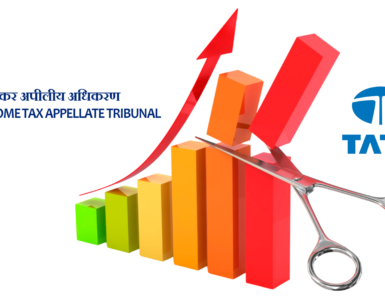RHI Magnesita a global leader in refractory operating in India through its various subsidiaries and wants to merge three subsidiaries where two companies are private limited, and one is listed entity. The merger is designed to optimally position RHI Magnesita’s operations in the strategically important Indian market to capture growth opportunities more effectively and efficiently. We had covered the scheme details in our previous article in our October 2018 issue.
The Scheme in brief:
- RHI India Private Limited (Transferor Company-1) a Private Limited Company a subsidiary of Dutch Brasil Holding B.V. which is ultimately held by RHI Magnesita N.V.
- RHI Clasil Private Limited (Transferor Company-2) a private limited Company, a subsidiary of VRD Americas B.V. which is ultimately owned by RHI Magnesita N.V. Netherland.
- Orient Refractories Limited (Transferee Company) listed entity, wherein the majority of shares are held by Dutch U.S. Holding B.V. which is ultimately owned by RHI Magnesita N.V. Netherland. The Shares of the transferee company are listed on BSE and NSE.
- The Companies have filed the scheme before Hon’ble NCLT Mumbai for amalgamation of transferor companies into Transferee Company.
- Post-Merger Orient Refractories will be renamed RHI Magnesita India.
- All three companies primarily engaged in the business of manufacturing, trading, marketing of refractories and allied products.
Objective of the Scheme:
All the companies are into same and allied business activities.
The objectives were:
- Simplification of corporate structure and consolidation of India business.
- To establish comprehensive refractory product portfolio
- Realising business efficiencies through optimum utilisation of resources
- To optimise cash flow this contributes to overall growth prospects of the combined company.
- Creation of larger asset base and facilitation of access to better financial resources.
- Enhanced shareholder value pursuant to economies of scale and business efficiencies.
The purpose behind the merger was to consolidate Indian business of RHIM Group, by which two private limited company will merge into the listed entity Orient Refractories Limited and RHI Magnesita- the Parent Company will have approximately 70% stake in the Orient Refractories which will be renamed RHI Magnesita India.
Swap Ratio
- For every fully paid up 100 (One hundred) equity shares of Rs. 10 (Ten) each of RHI India, Orient will issue 7044 (Seven Thousand Forty-Four) fully paid-up Equity Shares of Rs. 1/- (One) each
- For every fully paid up 1000 (One Thousand) equity shares of Rs. 10 (Ten) each of RHI Clasil, Orient will issue 908 (Nine Hundred and Eight) fully paid-up Equity Shares of Rs. 1/- (One) each.
Accounting Treatment:
As per the Composite scheme, the Transferee Company will give effect to the amalgamation in its books of account as “Business Combinations” in accordance with Indian Accounting Standard (IND AS 103), Business combination and other accounting principles prescribed under the Companies (Indian Accounting Standards) Rules, 2015 (Ind AS) as prescribed under Section 133 of the Companies Act, 2013.
Decision of NCLT:
The order of the Hon’ble NCLT-Mumbai dated 02.03.2020 has not sanctioned/approved the proposed Scheme of Amalgamation. Neither Regional Director nor the official liquidator has objected to the scheme. Even shareholders approved the scheme with a requisite majority.
The Regional Director has filed his report dated 24 June 2019, among other things observing as follows:
In paragraphs, IV (f) as per the Definition of the scheme, “Appointed Date” means 1st day of January 2019 or such other date as may be approved by the NCLT or such competent authority as may be applicable. In this regard, it is submitted that Section 232(6) of the Companies Act, 2013 states that the scheme under this section shall clearly indicate an appointed date from which it shall be effective and the scheme shall be deemed effective from such date and not at a date subsequent to the appointed date.
Honourable NCLT found an anomaly in date of approval of the scheme and date of valuation report by Chartered Accountant and Merchant banker as against Appointed Date which is a future date. To support its view, NCLT quoted the Order of NCLT, Mumbai Bench dated 05.09.2018 in the matter of Scheme of Arrangement (Demerger) between East West Pipeline Ltd. and Pipeline Infrastructure Pvt. Ltd. in CSA No.719/2018, wherein the Bench has dealt with the issue of “Appointed Date” and the relevant portion from the Order is reproduced/ discussed below:-
Point No. 24 of the order:
The logic behind asking appointed date at the time scheme presented before Tribunal is that, appointed date must be conceived as date from which demerged company undertaking is deemed as transferred to resulting company with all financial implications. And it will come into effect if scheme is approved by NCLT as well as approved by all regulatory and Sectoral Authorities, or else, that undertaking will continue as part of the demerged company as before.
Point No. 25 of the order:
To know the financials of this arrangement, the assets proposed to be transferred to the resulting company shall be valued, so that the consideration payable for transfer of the assets can be fixed, then if any share swapping, then to decide swap ratio, likewise to decide transferability of assets or liabilities; stamp duty liability, tax (direct and indirect) liability and loss or gain of Tax benefits by valuation of. So Tax benefits by valuation of. So this cut off date taken into consideration for valuation shall be the appointed date, because all the financial implications are dependent upon the cut-off date and valuation thereof…
Point No. 26 of the order:
Appointed date shall be the date determining the value of the transfer of Assets and its implications, so that shareholders, creditors and all other stakeholders will be in a position to know the permutations and combinations of that arrangement, therefore, basing on which they will make up their mind how to go about the Scheme. Likewise, the Tax Authorities, as well as Stamp Duty Authorities, will be in a position to assess the Tax Liability as well as Stamp Duty payable over such transfer.’
Point No. 30 of the order:
In view thereof, there won’t be any appointed date in future, because the scheme always dependent upon the valuation and for valuation of the assets having to be done before presenting scheme, it is inconceivable to visualise appointed date in future.
Point No. 22 of the order:
The Bench has also considered the Circular No.09/2019 dated August 21, 2019, issued by the Ministry of Corporate Affairs on the issue of appointed date wherein it is clarified that the provision of section 232(6) of the Act enables the companies in question to choose and state in the scheme an ‘appointed date’. This date may be a specific calendar date or may be tied to the occurrence of an event such as grant of license by a competent authority or fulfillment of any preconditions agreed upon by the parties, or meeting any other requirement as agreed upon between the parties, etc., which are relevant to the scheme. In the current Scheme of Amalgamation, a specific date, i.e. 01.01.2019 has been fixed as an Appointed Date whereas as discussed above, valuation report, fairness opinion, Board Resolution of all the Petitioner Companies were dated 31.07.2018.
Therefore, we are of the considered view that as clarified by the Ministry of Corporate Affairs, the Scheme is not tied to the occurrence of an event or fulfilment of any pre-conditions agreed upon by the parties, hence the appointed date should be the valuation date i.e. 31st July,2018 as against 1st January ,2019 as per the scheme. as discussed above.
Considering the above factual details, the profit earning capacity and other financials of the Transferor-I and Transferor-II Companies, the share exchange ratio as per the valuation given by the Auditor and the Fairness Opinion given by the Merchant Banker appears to be too high which results in undue advantage/ enrichment to the shareholders of both the Transferor Companies and to the shareholders of the ultimate holding Company RHI Magnesita. Therefore, we are of the considered view that the Scheme is devised/ designed majorly to benefit the Two shareholders of Transferor Company-I and few shareholders of Transferor Company-II which in turn the undue advantage ultimately flows to the shareholders/holding Company, i.e. RHI Magnesita. In view of the above analysis, we are of the considered view that the Scheme appears to benefit only a few shareholders of Transferor Company to be unfair and unreasonable and contrary to the public policy, public shareholders of the listed Company, therefore, we deem it fit not to sanction/ approve the proposed Scheme of Amalgamation. Therefore, we do not sanction/ approve the Scheme as prayed for.
Conclusion:
Hon’ble NCLT Mumbai in the given matter concluded that there cannot be Appointed Date in future and even if the scheme is considered and approved by all concerned i.e. shareholders, Regional Director and Official liquidator. It applied the ratio of the Order of NCLT, Mumbai Bench dated 05.09.2018 in the matter of Scheme of Arrangement (Demerger) between East West Pipeline Ltd. and Pipeline Infrastructure Pvt. Ltd. in CSA No.719/2018, though the present case is that of merger wherein The Transferee Companies will cease. Further, it didn’t change the Appointed Date and sanctioned the scheme as in the case of East-West Pipeline. The honorable NCLT failed to differentiate financial consequences in case of demerger and merger. It seems while applying circular No.09/2019 dated August 21, 2019 also failed to appreciate the fact that the scheme is an agreement and arrangement between companies and hence The Appointed Date as per the scheme can be considered in line with the circular read with Section 232(6).
Ultimately The scheme was rejected on the ground that it is beneficial for only few shareholders, wherein it is held even by The honorable Supreme Court that, the court has no powers to go into fairness of valuation report, if it s by qualified experts and approved by all the parties to the transaction.
In our opinion, the scheme could have been approved as presented or at least after the change in the Appointed Date to 31st July 2018. The companies have decided to move to NCLAT against the order by filing appeal after the current Corona pandemic.





Add comment